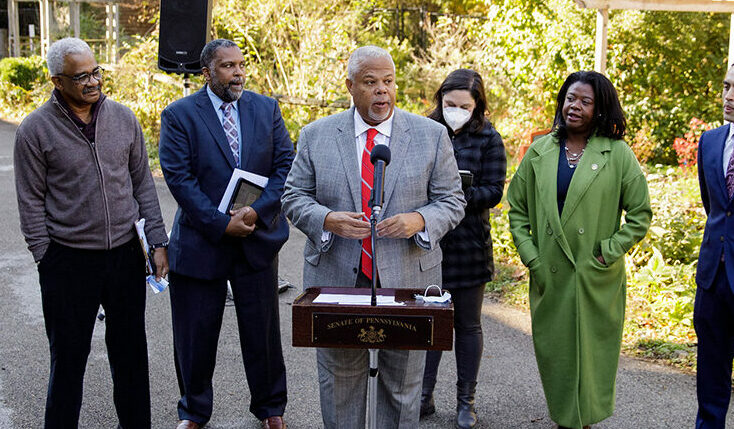LUCAS: Beating an Incumbent Politician Is Tough — But It Can Be Done

Almost any election is, by nature, a referendum on the incumbent. But the 2024 presidential election has two incumbents of sorts.
Incumbents generally have an automatic name recognition and fund-raising advantage. However, a challenger can triumph if the contest is about the incumbent’s shortcomings, Swiss political consultant Louis Perron explains in his new book “Beat the Incumbent: Proven Strategies and Tactics to Win Elections.”
President Biden is the actual incumbent going into a likely 2020 rematch with predecessor Donald Trump, who has been a de facto incumbent in the primary season, maintaining an overwhelming lead over Republican contenders.
“Every election is different, but every election is the same,” said Perron, who has advised campaigns in the United Kingdom, Germany, Switzerland, Romania, Ukraine, Malaysia and the Philippines, ranging from mayoral to presidential candidates. “Candidates used to argue over opinions; now they argue over facts. But the basics of elections never change. Candidates have to have a strong message and good crisis management.”
He noted the two previous U.S. incumbents — Barack Obama and George W. Bush — mastered this in dispatching their challengers, John Kerry and Mitt Romney.
“Elections are naturally a referendum on the incumbent, but the challenger has to keep it as a referendum on the incumbent,” who earned a master’s degree in political management from George Washington University and a doctorate from the University of Zurich. “An incumbent has to be brutal and do damage to the challenger as Bush did and as Obama did.”
The book asserts the recommendations are applicable across various countries and political offices.
It also describes how Obama’s first campaign in 2008 painted opponent John McCain as a Republican insider tied to an unpopular incumbent as McCain tried to sell a maverick image; how Ukrainian President Volodymyr Zelensky managed to win a landslide despite being a first-time candidate for office; and how François Hollande never let the pressure off incumbent Nicolas Sarkozy in winning the French presidency.
In laying out a blueprint, it would seem to have some similarities with the famous Allan Lichtman book “Keys to the Presidency,” which lays out a specific formula to predict which candidate wins. But the Perron book is also a how-to manual, rooted in history and political science, with chapter titles such as “The Secrets of Selling Change,” “The Best Challenger Campaign Messaging Ever,” and concluding with “Final Word and Checklist.”
After Iowa, GOP candidates learned the insurmountable difficulty of beating a de facto incumbent, but polls have shown New Hampshire is closer, depending on which poll you read.
“One reason Nikki Haley is a safer choice for Republicans in New Hampshire is because a challenger is better positioned if the election is a referendum on the incumbent,” he said.
He anticipates Trump will close the deal on the Republican nomination with a New Hampshire victory. However, New Hampshire might not hold the final say. He points to the 1976 Republican presidential primary as an example where a challenger can gain momentum late. In that case, former California Gov. Ronald Reagan challenged President Gerald Ford.
“Ford ultimately won, but it was very close,” he said. “What’s so surprising about 1976 is how long it took Reagan to catch steam. But once he did, he won a string of primary victories.”
In 1976, Ford won in Iowa, New Hampshire and four more contests and appeared likely to cruise to the nomination. Then Reagan turned the tide by winning North Carolina and several other states. The contest went back and forth, and it was a contested Republican National Convention, where Ford prevailed.
Still, the historical anomaly could prompt either Haley, a former United Nations ambassador, to hold out hope of unseating the quasi-incumbent Trump.
In a general election, Trump and Biden are so disliked that the “double haters” could decide the outcome, Perron said.
“If the focus is on Trump, Biden will win. If the focus is on Biden, Trump will win,” he said.



